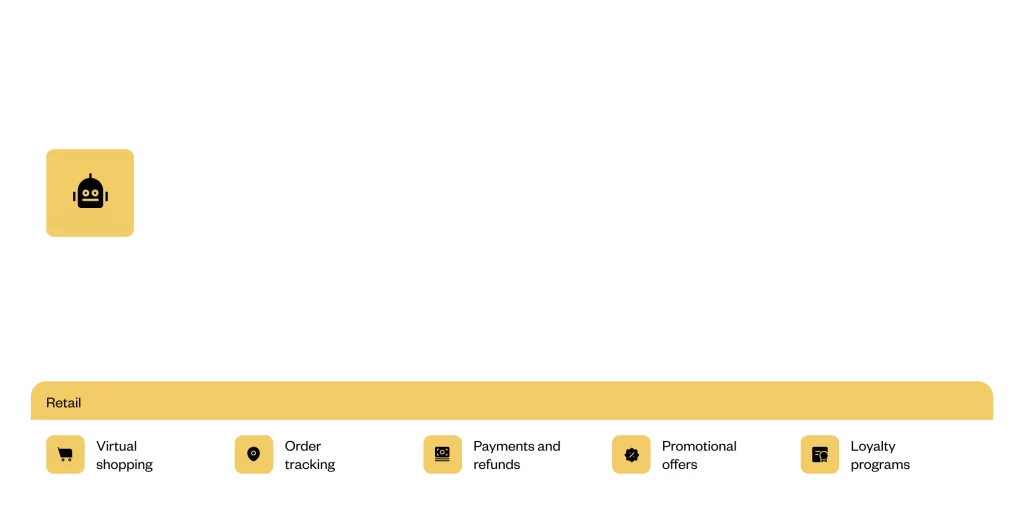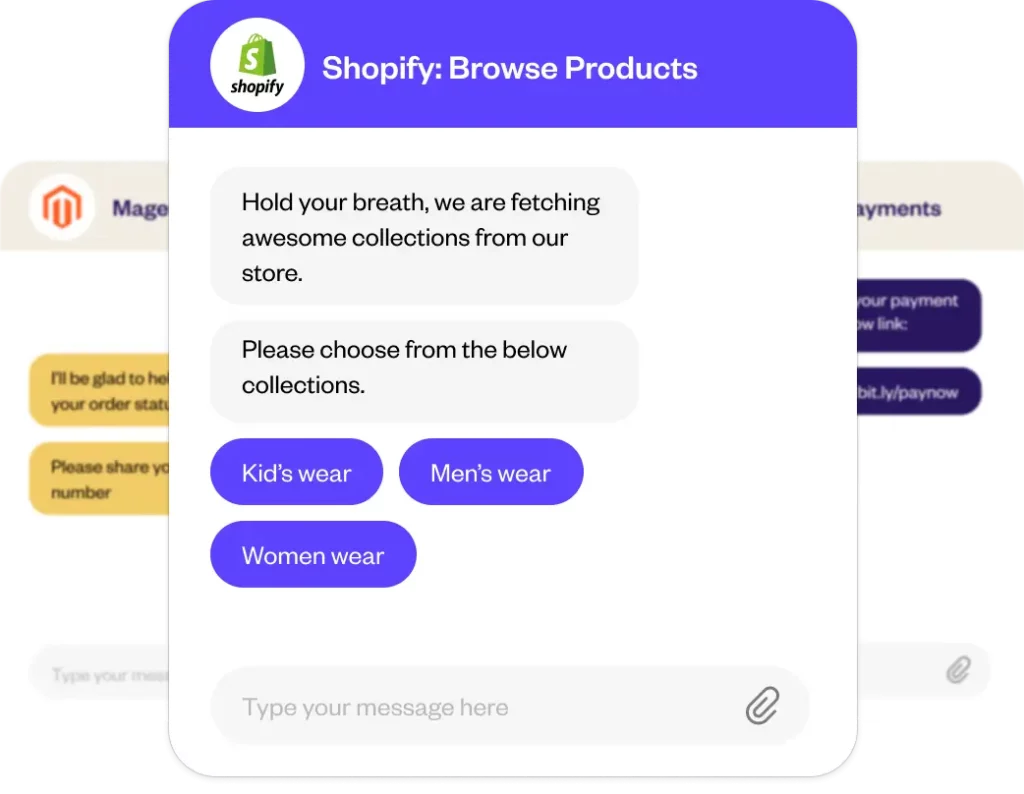Analytics
Channels
Human + AI
Safe AI
Integrations
Enable instant and human-like customer support to buyers in 135+ languages with the market-leading AI-first, unified customer service platform.

90%
of retail queries self-served
60%
reduction in operational costs
50%
boost in agent productivity
Engage buyers in human-like conversations 24/7, providing proactive resolutions and information about products, payment, delivery, and more.

Deploy voice agents for empathetic, human-like conversations while handling customer queries related to product availability, cancellations, tracking updates and more.
Provide your customers with a smooth retail experience by proactively communicating updates on product delivery. Integrate seamlessly with existing CRM systems to keep your customers in the loop.


Dynamic AI agents connect seamlessly with ERP systems to provide instant status regarding product availability to customers. In case of non-availability, customers can opt-in for ‘back in stock’ notifications.





Customers can view products, check product availability, compare products, place orders, track order status, initiate exchange/refund, and also provide product feedback without involving a human agent.
Integrate with e-commerce platforms to showcase digital shop fronts on multiple channels.
Seamlessly connect with payment platforms for effortless checkout directly from the chat.
Recommend products, complementary items, and discounts as per the purchase history and preferences.



AI agents turn every interaction with the user into a moment of delight with contextual and personalized conversations.
Seamlessly integrate your AI agent with the Customer Data Platform (CDP) to gather and build customer profiles based on their buying behavior, queries, interests, activities, and conversations across channels.
While the AI agent can resolve up to 90% of queries, it’ll escalate complex queries rapidly to the human agent for quick resolution.
Measure critical metrics from customer conversations and chatbot analytics like user feedback, top customer flows, user acquisition details, bot performance, bot activity, etc
